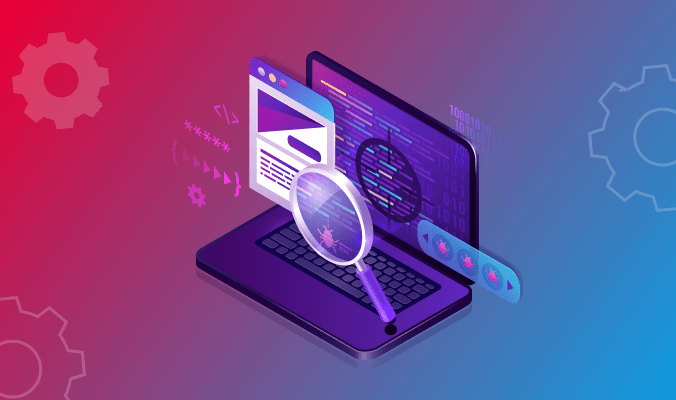
Testing is perhaps the most popular field among IT beginners. It seems like a promising profession, one that doesn’t require specific knowledge, lengthy training, or technical education. While it’s true that you can develop basic QA skills from scratch, NIX firmly believes that being a tester is just the first step towards becoming an excellent specialist. And under the right conditions, you can evolve into a QA engineer. In this article, we’ve outlined what will help you on your journey.
Key Skills for QA Engineer and a Tester
To successfully kickstart a career in QA, you usually only need a few fundamental skills:
- Attentiveness
- Perseverance
- Understanding of the software you are testing
These qualities should be complemented with knowledge of specific tools, from bug tracking systems to professional messengers. However, all of this will not be enough to transition to the role of a QA engineer responsible for the overall quality control of a product.
To get to the next level, you need to grasp the theory and fundamentals of the subject area, gain practical experience with various applications, and acquaint yourself with all common testing approaches. This demands an investment of time and effort, but we assure you, it won’t be boring! The key is not to shy away from daily practice, challenges, and difficulties, as they unveil the beauty and diversity of the profession.
Difference between QA Engineers and Testers
The responsibilities of a tester significantly differ from those of a QA engineer. Testers run tests and compare their results with the expectations outlined in the documentation. On the other hand, QA engineers are committed to comprehensive work aimed at maintaining the quality of the final product. They establish communication with the team, plan testing, develop project-specific documentation, and much more. Proficiency in all these areas comes with experience. As a tester, you will actively participate in team activities, witness the work of QA colleagues, developers, devops, receive new assignments, and deepen your expertise. This will lay the foundation for your journey towards becoming an engineer.
Navigating Challenges on Your Journey to Becoming a QA Engineer
At the beginning, you must realize that gaining practical commercial experience does not instantly transform you into an engineer. The IT field offers various roles such as testing, QA, QC, and more. While this provides numerous opportunities, it also presents various challenges. Here are the main ones:
- Lack of Systematic Thinking: Systematic thinking is crucial for QA engineers. It allows them to view the project holistically, devise optimal testing methods, and create test cases. Beginners often focus solely on individual features, neglecting the broader system and internal dependencies. Developing systematic thinking enables you to plan testing for even large-scale projects, so always seek the best testing approaches, expand your professional horizons, find valuable test cases, and enhance your work efficiency. This opens doors to engaging tasks.
- Discrepancy Between Reality and Expectations: Early in your career, you may find yourself in a new project, writing test cases for multiple modules. You might feel you’ve done an excellent job, but circumstances can change. Returning to the same project years later, you may notice the test cases you once thought were perfect have flaws. Developing a realistic perspective on your work is vital.
- Ineffective Team Communication: QA engineers need to excel at quickly receiving, transferring, and sharing data with diverse individuals, from fellow testers to customers. Effective communication and task allocation are crucial skills, but beginners might struggle with questions to ask, whom to ask them of, how to share results, and processing feedback. Effective team communication is essential for project progress.
- Limited Tool Utilization: QA engineers must continuously update and expand their toolkit. While you may have preferred, trusted tools, none are universally applicable. That’s why you need to find the right tools for the task to get the job done quickly and efficiently. For example, for automated testing of web UI in Angular, it is better to choose Protractor, and for other tasks, Selenium. Don’t hesitate to learn new tools as they become essential. It might be challenging, but it’s also exciting.
Embracing a QA Mindset: From Tester to Engineer
Some might argue that thinking like an engineer is an exaggeration for a tester. However, we believe that QA specialists should embrace each task as a challenge and seek new approaches to conquer it. While an ordinary tester encountering unfamiliar tasks or tools might say, “I don’t know how to do this; we need someone who does,” an engineer, even while functioning as a tester, would respond with, “I’m ready to understand and tackle this unfamiliar task.” A true engineer explores new ways to optimize their work, even with familiar tasks.
Our team’s experience demonstrates that this approach yields excellent results. Several testers gradually adopted this QA mindset and became experts. More importantly, they now find greater satisfaction in their work. By shedding their fear of the unknown and viewing each task as a challenge, they have earned the respect of colleagues and management, leading to career growth.
Consequently, these specialists now enjoy a broader scope of activities, including:
- Automation of functional tests
- Performance testing
- Security testing
- Accessibility testing
Furthermore, QA engineers who transitioned from testers can:
- Analyze software code to discover new testing methods and eliminate redundant checks
- Apply novel test design techniques to existing tests
- Develop new test pipelines
This list merely scratches the surface, as engineers will encounter many engaging tasks according to their skill set. While some project constraints might limit options, a desire for development can lead to innovative approaches in any project. Our experience and team showcase that experimentation and a proactive mindset are appreciated and rewarded. QA is more than just testing; our industry offers ample room for growth if you adopt a QA mindset from the outset.
If you’re considering a career change to IT and are wondering how to become a QA engineer, we strongly recommend taking a look at our free courses at NIX. These courses are designed to kickstart your QA career in just 2 months. We offer comprehensive mentorship support throughout your journey and provide an exciting opportunity to join our team after completing your training.






